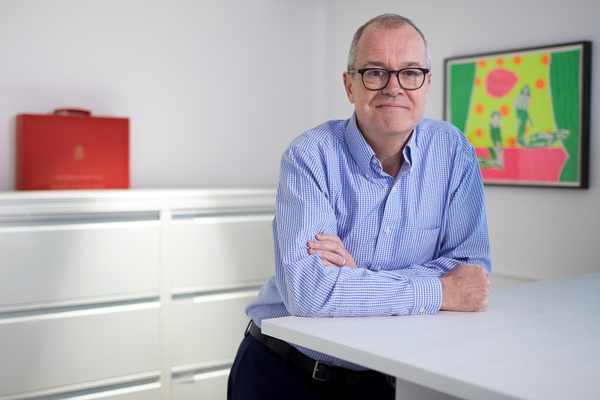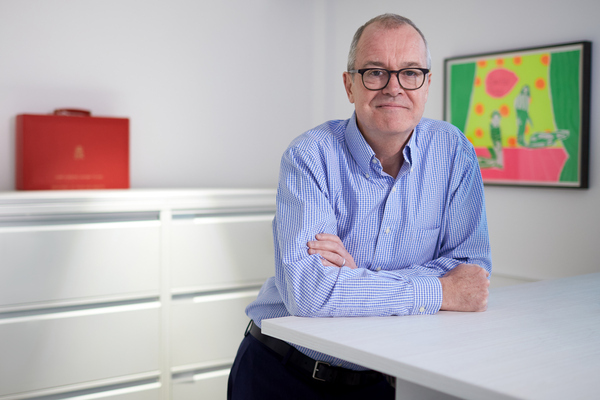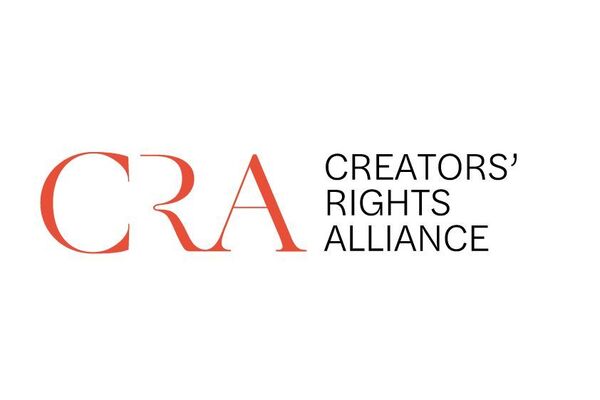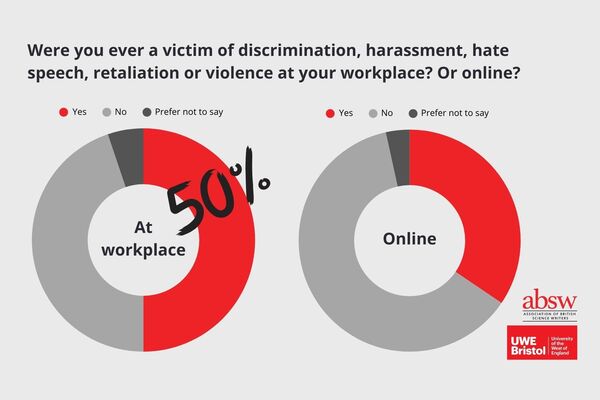
By Dominic Sorrell, MSc Science Communication, University College London
On March 29th 2023, at the Science Museum in London, Sir Patrick Vallance reflected on the state of UK science and those fateful pandemic years. Sir Patrick, now at the end of his 5-year term as Chief Scientific Advisor to the UK Government, spoke to BBC science correspondent and ABSW honorary president Pallab Ghosh.
Before getting into the conversation, Vallance shared some of his insights into the critical role of science in government, and how it permeates “every single area”. But how do we ensure a healthy science culture in Britain?
The first area, according to Vallance, was government itself. Is science well represented within the ranks of Whitehall? Vallance discovered, upon starting his role, that of all graduates entering the civil service fast track scheme, only 10% had STEM degrees. Today, the target is 50%.
The second target was foundational research in the UK. This country enjoys a good scientific reputation thanks to its world class universities and research centres, but Vallance cautions us to not “rest on our laurels”. With funding, consistency is just as important as scale.
Finally, and perhaps most pertinently for the ABSW, Vallance talked on the need for a positive public attitude towards science. This will no doubt involve educators and science writers, but will also require a model of science communication that is not just one-way. As we saw during the pandemic, public cooperation required much more than simply public understanding of science.
Ghosh started the evening’s conversation with a question that must have crossed all our minds at some point: how did you stay so calm during the Covid-19 pandemic? Vallance confessed that he was in fact “extremely anxious” but also “extremely focused” on getting accurate data to policy makers quickly.
But to ensure that this is done successfully, it is not enough to simply present the information, you also have to make sure it has been heard by ministers. This requires scientific advisors to synthesise evidence and formulate advice that is actually useful to policy makers, an “absolutely critical” point for Vallance.
Despite the efforts of Vallance and other scientists, we saw the government’s supposed commitment to “following the science” waver at several points. Ghosh asked whether this was frustrating for Vallance. Resisting the temptation to vent, Vallance reminded us of something we all too easily forget when caught up in the news cycle: “it’s a very difficult thing to make policy”. He added that he is a “strong and resolute believer in democracy” and therefore, even if he disagreed with them, it was ultimately in the hands of elected politicians to make the decision.
Naturally, any advice given to government was published as soon as possible for all to see, but filtering through the barrage of data coming from government and elsewhere were the journalists. In a time where access to scientific information was even more of an essential service than usual, was the coverage adequate?
To this Vallance affirmed that journalists had, overall, done a good service to their readers and the wider public. That did not stop some, however, leaning into sensationalism or finding some political bent to the scientific advice.
Moving away from the pandemic to his other achievements as the Chief Scientific Advisor, Vallance shared a small anecdote where he confronted widespread scepticism on climate change within government. In 2019, Vallance, accompanied by two of his colleagues, spent a couple of hours with the then Prime Minister, Boris Johnson, on a Friday afternoon to go through the climate science. “It pretty much stopped the climate scepticism”, said Vallance, and Johnson told him later, at COP26, that it was his “road to Damascus experience”.
At the end of his conversation with Ghosh, Vallance answered several questions from the audience. One asked is we are ready for the next pandemic. Although impossible to answer definitively, Vallance did lay out three principles of action to give ourselves the best chance. 1) To start building the platform technologies for vaccines before the next pandemic strikes. 2) To embed vaccine manufacturing sites into society, ready to scale production. 3) To work out lockdown rules before the next emergency.
Another audience member asked what was it like to suddenly become a household name during the pandemic. With constant intrusion into his private life, including photographers taking photos of his family in their home, Vallance admitted he was “very glad to be slipping back into anonymity.”
As Sir Patrick Vallance steps down from his role, it was also Pallab Ghosh’s last appearance with the ABSW before he steps down as honorary president on the 18th April.










